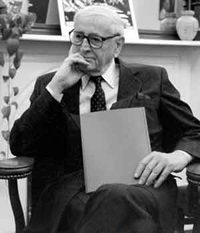
July 9, 2015; Chronicle of Philanthropy
The unannounced candidates are numerous. It isn’t clear whether they have formed exploratory committees or named the leaders of their campaigns. Neither the Federal Election Commission nor any other body has intervened to get the candidates to formalize their campaigns and disclose their finances.
Yes, it is the effort to find a replacement for Diana Aviv as head of Independent Sector. She is leaving in October to take the helm of Feeding America, a challenge that will require as much from Aviv as Independent Sector ever did.
But to replace Aviv, who fits the bill? Alex Daniels reports for the Chronicle of Philanthropy with a number of potential candidates who may fit some aspect of the bill to run the national association that was originally led by the civic visionary John Gardner. The question is not just who can fill Aviv’s shoes, but Gardner’s. (For those who might not remember, Gardner was LBJ’s Secretary of Health, Education, and Welfare, an architect of the Great Society programs, and a lifetime advocate for social action through the nonprofit sector.)
Sign up for our free newsletters
Subscribe to NPQ's newsletters to have our top stories delivered directly to your inbox.
By signing up, you agree to our privacy policy and terms of use, and to receive messages from NPQ and our partners.
The Daniels list includes the following people, all suggested by interviewees who chose to speak off the record:
- William Daroff, director of the Washington office of the Jewish Federations of North America, a former presidential campaign staffer for the presidential campaigns of Jack Kemp, George H.W. Bush, and Bob Dole, an appointee of President George W. Bush to the Department of Energy, and former deputy executive director of the Republican Jewish Coalition
- Neal Denton, senior vice president and chief government affairs officer of the YMCA-USA, formerly senior vice president for the American Red Cross and executive director of the Alliance of Nonprofit Mailers
- Steve Taylor, senior vice president, United Way Worldwide, formerly general counsel for Senator Chuck Hagel (R-NE) and former staff member for Senator Pete Domenici (R-NM) and counsel to the Senate Judiciary Subcommittee on Antitrust, reporting to Senator Mike DeWine (R-OH)
- Jacob Harold, CEO of GuideStar and previously a program officer at the William and Flora Hewlett Foundation, a staff member of Bridgespan, and a staff member for the David and Lucile Packard Foundation
- Phil Buchanan, CEO of the Center for Effective Philanthropy
- Jeanne Bell, CEO of CompassPoint (and a member of the NPQ editorial board)
- Nancy Lublin, head of Crisis Text Line which provides counseling through text messages (and formerly head of the youth volunteerism organization, DoSomething.org)
- Jason Lee, General Counsel for the Association of Fundraising Professionals, formerly a staff member for Senator Barbara Boxer (D-CA) and Congresswoman Sheila Jackson Lee (D-TX)
- Donna Butts, executive director of Generations United and formerly an executive with the National Organization on Adolescent Pregnancy, Covenant House, and the National 4-H Council
Daniels reported that Denton blew off the IS idea with a jest that he would rather be named to head Major League Baseball, and Harold and Buchanan both said that they weren’t leaving their current positions, but like political candidates who start off with reluctant public statements, no one should be automatically ruled in or out.
It’s a fun game to suggest dream or nightmare candidates for the job. We had been threatening friends and associations with starting rumors for their candidacies, but the Daniels list raises substantive, serious questions about the future direction that Independent Sector might or should take in a post-Aviv environment.
- Daniels identifies Harold and Buchanan as number and metrics types, which raises the question of how much the new Independent Sector will double down on a vision of nonprofits as focused on telling the nonprofit story through numbers. The debate over metrics has hardly been resolved in the sector, and the choice of a new IS director may be symbolic one way or the other.
- Harold noted another issue for the future Independent Sector: How much should it focus on nonprofits versus a more inclusive collectivity of organizations engaged in “social good”? That would open up IS to advocate for socially-minded corporations, social enterprises, financial services groups that pitch social impact bonds, and more. Harold said that IS faces an “identity crisis.” How “sector-agnostic,” to use the term promoted by Ralph Smith of the Annie E. Casey Foundation, should the future IS be?
- IS is very strongly connected to foundations, even though that was never in the original vision of Gardner, but only one of the Daniels list comes with very strong foundation credentials (Harold, who was a high profile grantmaker at the Hewlett Foundation). The foundation community, particularly the larger foundations, has the Council on Foundations as its trade association. Should the new IS director be even closer to foundations or chart a course that is more “independent?”
- Beyond foundations, a couple of the nominees come from large nonprofits that are known to exercise significant influence on Capitol Hill, but the issue is not just Capitol Hill, but the nature of the nonprofit sector. The vast bulk of nonprofits are small; almost 87 percent of 501(c)(3) charities report revenues with totals below $1 million annually. Independent Sector often presents itself as representing the interests of all nonprofits, but does it really? And can it? And what will the choice of a new CEO say about that?
- Daniels cited Jatrice Martel Gaiter, a vice president of the Volunteers of America, who suggested that the new IS director should be one who corrals the “newly-minted technology billionaires” and other big corporation players into IS. Her comment raises a question about IS’s relationship to the big societal problem of the increasing concentration of wealth in our society and the influence that the billionaires and big corporations have over our nation. Given that many of the contributors to charities are the powers that exercise undo political and economic influence in our country, where will IS and its new executive director stand on the disproportionate economic and political influence of the top one percent?
- It may say something about the nonprofit sector, but other than Lee at AFP, none of the people on the list generated by Daniels’ anonymous nominators is a person of color. In the wake of the increasing evidence of race issues tearing at the fabric of American society, it is striking that no one on the list is Latino or African-American. Perhaps leaders such as Bob Ross at the California Endowment, Emmett Carson at the Silicon Valley Community Foundation, Fred Blackwell at the San Francisco Foundation, or James Head at the East Bay Community Foundation are perceived as too well ensconced in their current positions to be considered as potentially interested in the IS gig, but they and others would be as capable as anyone of leading IS into the future—and ensuring that IS was institutionally relevant to the crises brought to the attention of the American public by tragic events in Charleston, Ferguson, Staten Island, and Cleveland.
Now, go back to the description of Gardner earlier in this newswire, think about the issues of our times and the role of the civil sector, and tell us, dear NPQ readers, what you think a new Independent Sector leader should bring to the table, and who that person should be. —Rick Cohen











